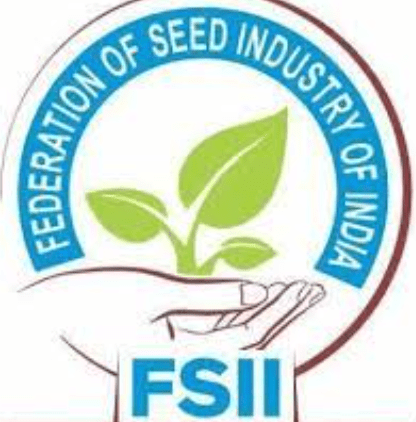As India propels itself towards agricultural excellence, the Federation of Seed Industry of India (FSII), a formidable association of R&D-based plant science companies, envisions a robust future for the sector, aiming for India to become the “Seed Valley of the World.” As Budget 2024 approaches, the industry leaders present their expectations and perspectives, outlining critical areas that need attention for the realization of this ambitious vision.
FSII’s Vision: India as the “Seed Valley of the World”
The Federation of Seed Industry of India (FSII) plays a pivotal role in steering India’s seed industry towards sustainable growth. With a focus on innovation and research, FSII aims to transform India into the “Seed Valley of the World.” This vision entails capturing 10% of the global seed trade, a significant leap from the current market share.
Pre-Budget Industry Expectations & Perspective
Dr M Ramasami’s Perspective
Dr M Ramasami, Former Chairman of FSII and Chairman of Rasi Seeds Pvt Ltd, highlights the significant growth potential of India’s seed industry. With a current valuation of US$6.3 billion, the industry aims to reach US$12.7 billion by 2028 and US$20 billion by 2040, projecting a Compound Annual Growth Rate (CAGR) of 10%. However, challenges such as the lack of differentiation between technology-focused and basic-level companies hinder this growth. To address this, Dr Ramasami proposes a National Register to track seed research, incentivize high-priority areas, and accredit research-based seed companies, ensuring a sustainable future for the industry.
Ajai Rana’s Perspective
Ajai Rana, Chairman of FSII and CEO of Savannah Seeds Pvt Ltd, emphasizes the importance of government support for seed industry research and development (R&D). He highlights the impact of income tax deductions on R&D, citing the reduction of deductions from 200% to 100% over the years. Ajai Rana urges the restoration of the 200% income tax deduction for seed industry R&D under Section 35(2AB) and advocates for customs duty changes to support seed research.
Ram Kaundinya’s Perspective
Ram Kaundinya, Advisor to FSII, emphasizes the need for cutting-edge technology and infrastructure to enhance the seed industry’s global competitiveness. He proposes the incorporation of international-standard laboratories and ISTA/NABL-accredited seed health testing facilities. Additionally, he advocates for a Production Linked Incentive (PLI) Scheme tailored to the unique needs of the Seed Industry to support India’s position as a global seed production and export hub.
Key Challenges and Solutions for the Seed Industry
The seed industry faces several challenges, including the lack of differentiation between technology-focused and basic-level companies, reduced income tax deductions for R&D, and customs duty changes impacting research essentials. To overcome these challenges, industry leaders propose the implementation of a National Register to track seed research, the restoration of income tax deductions for seed industry R&D, and the restoration of customs duty rates for essential research items.
Budget 2024 Expectations
Industry leaders expect Budget 2024 to address critical challenges faced by the seed industry, including income tax deductions for R&D and customs duty changes. They anticipate a transformative roadmap that aligns with the vision of India becoming the “Seed Valley of the World.”
The Importance of Research and Development (R&D) in the Seed Industry
Research and development (R&D) play a crucial role in the seed industry, driving innovation and ensuring the development of high-quality, high-yield crop varieties. Income tax deductions for R&D are essential for incentivizing investment in research and fostering technological advancements in the industry.
Customs Duty Changes and Industry Impact
Changes in customs duty rates for scientific equipment and research essentials impact the seed industry’s ability to conduct research and develop new seed varieties. Restoring customs duty rates to support seed research is crucial for ensuring the industry’s growth and competitiveness.
Infrastructure Needs for Technological Advancement
Cutting-edge technology and infrastructure are essential for the seed industry to remain globally competitive. Industry leaders advocate for the establishment of international-standard laboratories and seed health testing facilities to support research and development efforts.

Production Linked Incentive (PLI) Scheme for the Seed Industry
The industry proposes a Production Linked Incentive (PLI) Scheme tailored to the unique needs of the Seed Industry. This scheme aims to incentivize investment in seed production and research, supporting India’s position as a global seed production and export hub.
Click Here For Latest Articles and Information
Conclusion
As India propels itself towards agricultural excellence, the seed industry emerges as a cornerstone for sustainable growth. The Federation of Seed Industry of India (FSII) envisions a robust future for the sector, aiming for India to become the “Seed Valley of the World.” With Budget 2024 approaching, industry leaders present their expectations and perspectives, outlining critical areas that need attention for the realization of this ambitious vision.
FAQs
- What is FSII’s vision for the Indian seed industry? FSII envisions India becoming the “Seed Valley of the World,” capturing 10% of the global seed trade.
- What challenges does the seed industry face in India? Challenges include the lack of differentiation between technology-focused and basic-level companies, reduced income tax deductions for R&D, and customs duty changes impacting research essentials.
- What are the key expectations from Budget 2024 for the seed industry? Industry leaders expect Budget 2024 to address critical challenges, including restoring income tax deductions for R&D and customs duty changes.
- Why is research and development (R&D) important in the seed industry? R&D drives innovation and ensures the development of high-quality, high-yield crop varieties, essential for the industry’s growth and competitiveness.
- How can infrastructure support technological advancement in the seed industry? Establishing international-standard laboratories and seed health testing facilities can support research and development efforts, enhancing the industry’s global competitiveness.










